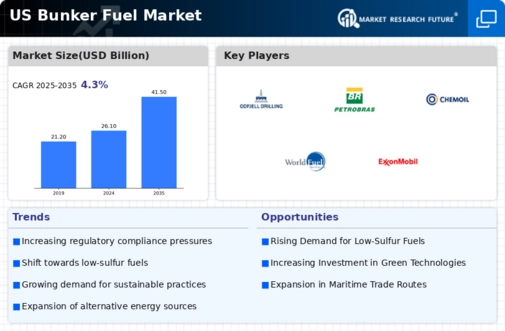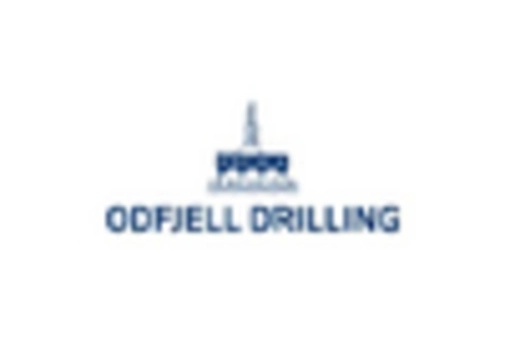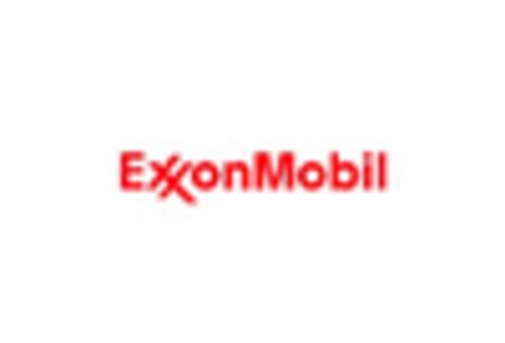The bunker fuel market is currently characterized by a competitive landscape that is both dynamic and multifaceted. Key growth drivers include the increasing demand for marine transportation, regulatory pressures for cleaner fuels, and the ongoing transition towards sustainability. Major players such as World Fuel Services (US), Chevron (US), and ExxonMobil (US) are strategically positioned to leverage these trends. World Fuel Services (US) focuses on digital transformation and enhancing customer experience through innovative technology solutions, while Chevron (US) emphasizes its commitment to sustainability and reducing carbon emissions in its operations. ExxonMobil (US) is actively pursuing partnerships to expand its supply chain capabilities, which collectively shapes a competitive environment that is increasingly focused on innovation and sustainability.
In terms of business tactics, companies are localizing their operations and optimizing supply chains to enhance efficiency and responsiveness to market demands. The market structure appears moderately fragmented, with several key players exerting influence over pricing and service offerings. This fragmentation allows for a variety of strategies to coexist, fostering competition that drives innovation and service improvements across the sector.
In November 2025, Chevron (US) announced a strategic partnership with a leading technology firm to develop advanced fuel management systems aimed at optimizing bunker fuel consumption for shipping companies. This initiative is significant as it not only enhances Chevron's service offerings but also aligns with the industry's shift towards digitalization and efficiency, potentially setting a new standard for fuel management in marine operations.
In October 2025, ExxonMobil (US) launched a new line of low-sulfur bunker fuels designed to meet the stringent environmental regulations set forth by the International Maritime Organization. This move is crucial as it positions ExxonMobil as a leader in compliance and sustainability, catering to the growing demand for cleaner fuels in the maritime sector. The introduction of these products is likely to enhance ExxonMobil's market share while addressing environmental concerns.
In September 2025, World Fuel Services (US) expanded its global footprint by acquiring a regional bunker fuel supplier in the Caribbean. This acquisition is strategically important as it not only increases World Fuel Services' market presence but also enhances its ability to provide localized services, thereby improving customer satisfaction and operational efficiency. Such expansions are indicative of a broader trend towards consolidation in the market, as companies seek to strengthen their competitive positions.
As of December 2025, current competitive trends are heavily influenced by digitalization, sustainability initiatives, and the integration of AI technologies into operations. Strategic alliances are increasingly shaping the landscape, allowing companies to pool resources and expertise to tackle common challenges. Looking ahead, competitive differentiation is likely to evolve from traditional price-based competition to a focus on innovation, technological advancements, and supply chain reliability. This shift underscores the importance of adaptability and forward-thinking strategies in navigating the complexities of the bunker fuel market.
















Leave a Comment